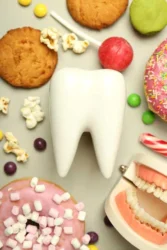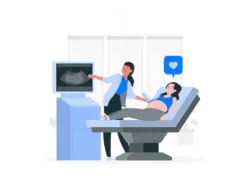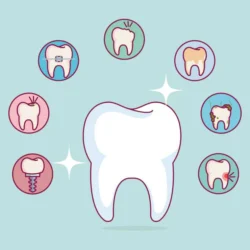What is the difference between routine and basic dental care? And what is considered routine dental care? If you are looking for ways to improve your oral health, you will need to know the answers to these questions.
Furthermore, it is essential to have regular checkups and to know a good and experienced dentist. If you are interested in Griffith dental care, you can visit the website and learn all the details about family dental care, as well as ways to improve your health.
Routine vs Basic Dental Care
One of the first things to distinguish is the difference between routine and basic dental care. Routine checkups and routine dental care mean that you will visit a dentist, even if you don’t think that something is wrong.
In the best-case scenario, your dentist will tell you that everything is well. Basic dental care is what you should do every day. It consists of different ways to improve your oral health and minimize risks of cavities, gum disease, and other dental problems. And basic dental care should become a part of your everyday routine.
Brush Your Teeth
Teeth cleaning is essential for your oral health. It can prevent so many problems and reduce the number of needed dental visits. It is highly recommended to brush your teeth at least two times per day and to spend over two minutes brushing each time.
Ideally, you would brush your teeth after each meal since it will prevent food debris from sticking to them. If you brush your teeth in the morning, you will lower the chances of bad breath, too, and ensure that your teeth remain healthy. But those are just a couple of the many steps necessary to ensure you have a good dental care routine.
There is a chance that you will need to adjust your routine if you wear dentures, especially if the dentures are removable. Of course, your oral health should still remain your number one priority.
Focus on the Tongue and Gums
Another thing you need to remember is that you need to brush everything. Brushing your teeth is great. But you need to give some attention to your tongue and gums as well. After all, having gum disease is not fun. It can affect your teeth and cause numerous dental problems, for example.
And the process of cleaning gums is quite simple. You can use the same toothbrush you use for your teeth and brush the gums and tongue as well. It is as simple as that. Just don’t overdo it. As with everything else, the key is in moderation. Brushing too hard and too often can damage your gums and even wear out the enamel on your teeth.
Brushing gums, teeth, and tongue will lower the chances of gum disease, cavities, and bad breath.
Use Appropriate Tools
By appropriate tools, we mean a good toothbrush, toothpaste, floss, and anything else you might need to keep good oral hygiene. You will want to get a soft-bristled toothbrush since anything hard can scratch your gums and damage enamel.
Naturally, you will be able to use the same toothbrush for your tongue, teeth, and gums without any problems. The next thing on the list would be fluoride toothpaste and any floss you enjoy using.
Regular brushing and using appropriate tools will help you create a good oral hygiene routine, and avoid any problems in the future.
Consider Your Diet
What you eat and drink will affect your mouth as well as your overall health. One of the main dangers for your teeth is sugar and soft drinks. Soft drinks can be acidic, and they will easily eat through the enamel. As a result, cavities will appear. Luckily, you can easily avoid lengthy procedures if you just don’t consume them.
If this is something you can’t do, you can still limit the intake and brush your teeth after drinking soda. You can also use mouthwash and anything else that will neutralize the effect of these sugary drinks.
Water can be beneficial for your body, which is why all doctors recommend drinking water on a daily basis.
Regular Checkups
Regular checkups and cleanings should become a part of your routine. If you focus on your health and ensure that you do everything based on the recommendations, you will only need to do checkups every couple of months.
The majority of people opt for biannual checkups, and the idea is to see whether there is a need for orthodontic treatments. If your dentist says that everything is fine, you can continue with the routine.
The main benefit is that the dentist will be able to spot any irregularity before it becomes a problem. Even if cavities appear, they won’t require extensive drilling or root canal treatment. Instead, everything will be over in a couple of minutes, and the situation won’t get a chance to progress.
Try to Quit Bad Habits
Of course, quitting bad habits is always easier said than done. If people could just stop smoking, they would do it. Smoking, for example, can cause numerous health issues. However, it can also damage teeth and gums.
It is not rare for smokers to have yellowish teeth, and fortunately, the staining is not permanent. If they want to improve oral health and start focusing on good routines, abandoning this dangerous habit is the way to go.
Teeth will be able to regain their natural color, and gums will be healthy again. But smoking is just one of many examples of bad habits that can affect teeth. Eating too much sugar can also cause heart problems, diabetes, problems with blood pressure, and so much more.
And sugar will eat through enamel like nothing. If you focus on brushing your teeth after each meal, you will lower the chances of cavities, even if you eat sugar on a regular basis.







